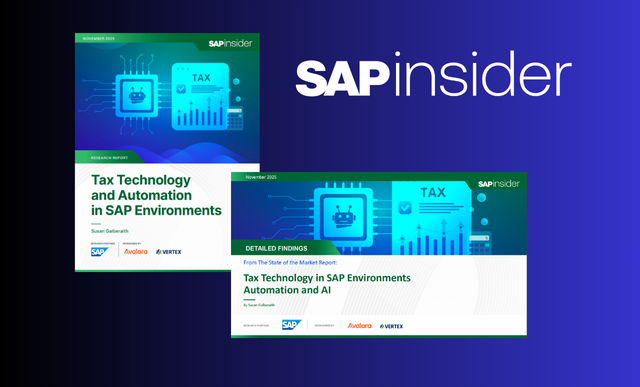
Meet the Authors
Key Takeaways
-
Governments across the globe are updating the way they will accept returns and period data, making it necessary for companies to have real-time data available on-demand.
-
Global companies can no longer rely on regionalized point solutions to meet one or two regulatory requirements.
-
Organizations must leverage dynamic and holistic solutions to meet their obligations and remain agile to keep pace with a constantly changing regulatory environment.
SAP organizations are struggling to keep up with the growing rate of change in their tax compliance requirements. Governments across the globe are updating the way they will accept returns and period data, making it necessary for companies to have real-time data available on-demand. The growing complexity in compliance management, governance, and regulations is the top concern affecting how companies pursue their global tax management strategies.
Anticipating Compliance Trends
These findings underscore some of the observations made by Sovos CEO Kevin Akeroyd in a recent piece predicting some of the upcoming trends within the tax compliance space. He noted that regulatory compliance is growing more important within major organizations, elevating to the C-suite level.
He added that companies are placing this emphasis on compliance because of the risk that these regulations pose to these companies.
Explore related questions
“If they can’t get compliance right, their ability to operate in and expand into new markets is greatly compromised,” said Akeroyd.
Global companies can no longer rely on regionalized point solutions to meet one or two regulatory requirements. They must adapt to use holistic compliance platforms, as the total cost of managing multiple solutions has grown to be cost prohibitive. Additionally, as the number and complexity of compliance mandates increase, these solutions lack the scalability to accommodate the needs of major organizations.
Looking to the Future
Akeroyd shared two predictions for the future of tax and compliance:
Compliance should be a platform play – Finance leaders should ensure that all areas of the company have the same compliance solution in place. Having compliance standardized throughout the organization can drain resources and cause unnecessary confusion. Akeroyd added that this mirrors trends in other core technology areas.
Embrace uncompromised data – Companies must embrace the possibilities that uncompromised data present. Akeroyd says, “insights and business intelligence made possible through compliance serves as the ultimate carrot.” These operational benefits can bolster capabilities well beyond meeting the minimum compliance requirements.
Conclusion
Governments around the world have been on the back foot when it comes to compliance for years. With technological advancements, they can now adjust their regulations more frequently to take in all the revenue they possibly can. Companies cannot afford to be reactive. Instead, they must be proactive.
“Businesses need to change their thinking. Instead of continuously playing defense, it’s time to go on offense. You need to understand the big picture of what is going on. It’s a completely different world than it was even a few years ago. Getting ahead on technology and ensuring the interoperability of systems is how you go from reactive to proactive,” said Akeroyd.
Compliance is more essential than ever before. Organizations must leverage dynamic and holistic solutions to meet their obligations and remain agile to keep pace with a constantly changing regulatory environment.




